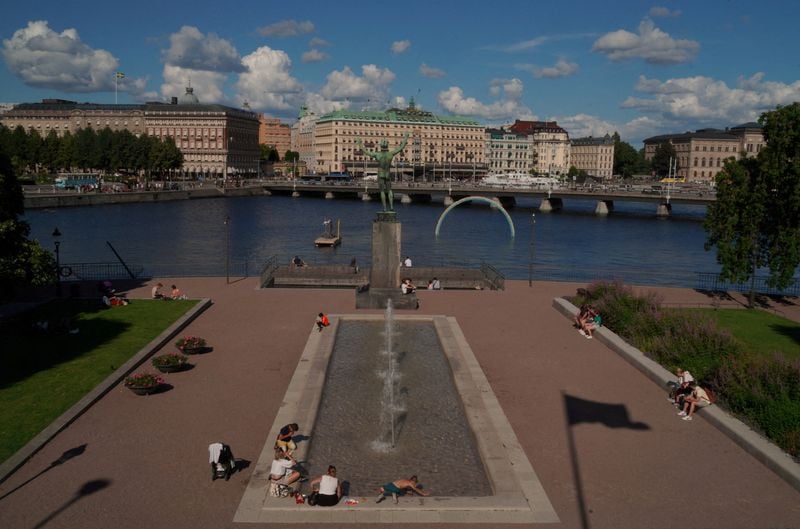By John O’Donnell
FRANKFURT (Reuters) – Long before Europe faced its debt crisis, Sweden struggled through its own 1990s property crash. Now the country is preparing to use an old playbook to contain its problems.
Sweden first embraced property in the mid-1980s, when the country scrapped strict limits on lending, triggering a free for all that led to a housing collapse and the rescue of two banks, tipping the 10-million-strong country into recession.
The country rebounded and home prices rocketed again, putting the average price tag on a one-bedroom flat in Stockholm at roughly 4.4 million crowns ($426,800). Now sales have ground to a halt and Swedes are looking with trepidation to the future.
“The market is almost at a standstill,” said Jens Henriksson, chief executive of one of the country’s biggest banks, Swedbank.
The banks are closely watching the country’s mid-sized property firms, several of whom are lumbered with a debt mountain built during a decade of rock-bottom interest rates and virtually free money.
At the centre of the fallout is a $13 billion property group, SBB, which borrowed to buy public property including social housing, government offices, schools, hospitals and police stations. It is now fast running through cash.
Property is the lynchpin of the Swedish economy, making up 80% of household debt. Weighed down by home loans, Swedes are twice as heavily indebted as Germans or Italians.
Prices are unravelling after the central bank started to hike the cost of borrowing. House prices are also down by around one-fifth since their March 2022 peak, reflecting soaring mortgage costs.
Price have potentially a long way to fall. While property doubled in value in the five years leading up to the 1990s crash, prices have since risen five-fold.
BLUEPRINT
Swedish officials are readying for action. During the 1990s, the government issued guarantees to salvage confidence.
Karolina Ekholm, director general of Sweden’s Debt Office, said Sweden had the financial muscle to intervene to stem any firesale of property from companies rushing to sell out.
She said the country had a light debt load and could afford to borrow more to intervene to buoy the property sector should a threat emerge to wider stability. She addressed the possibility of giving credit guarantees or subsidised loans.
Sweden’s bruising experience in the 1990s, when banks seized swathes of property underpinning loans, hardened its approach and gave it a blueprint for coping with crises. Sweden’s struggling property companies are under close scrutiny.
“If we were to get problems of course, we would take over the collateral,” said Swedbank’s Henriksson. “We would take over the real estate. We could sell it to the market.”
Swedbank has 1 trillion crowns ($97 billion) in mortgages and loans to tenant owner associations and a further 240 billion crowns in loans to property management companies.
Other banks are also determined to contain any fire.
“In the 1990s banking crisis, we took the collateral,” said Carl Cederschiold, finance chief of Handelsbanken, which has 1.7 trillion crowns ($165 billion) of Swedish residential loans and a further 300 billion crowns ($29 billion)for commercial property.
“We created a company where we put all the collateral and ran it as a real estate company,” he said. “We also sold it off at a profit.”
Masih Yazdi, Swedish bank SEB’s chief financial officer, played down any threat of spill over.
“We have collateral,” he said. “We are ready. We have the stamina. We will make sure … that we lose as little money as possible by selling it in a good market.”
In the meantime, there is no let up in pressure on the property firms.
“Low interest rates for several years … led people to believe that that’s the norm,” said Bo Lundgren, Sweden’s minister for fiscal and financial affairs in the early 1990s. “I think the central bank has made a grave mistake.”
The central bank has said it long warned of the risks.
Lundgren predicted that it would be the property companies to bear the brunt. “It’s not a problem for society,” he said. “It’s a problem for them.”
($1 = 10.3092 Swedish crowns)
(Reporting by John O’Donnell; Additional reporting by Marie Mannes in Stockholm; Editing by Alison Williams)
